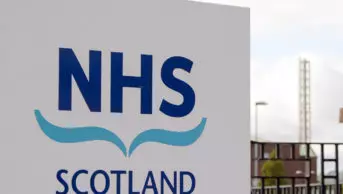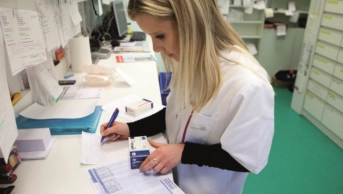
Shutterstock.com
A new pharmacotherapy service could be developed in Scotland as part of a proposed new GP contract.
The service would be established over three years from April 2018 to provide pharmacist and pharmacy technician support to the patients of every GP practice in Scotland, the Scottish government and the BMA in Scotland have jointly announced.
The GP Pharmacy Fund, which received £12m in 2017–2018 would continue for three more years, as part of the new contract arrangements, to “allow more pharmacists and pharmacy technicians to work in general practice, reducing GP workload and improving patient care”.
Under the proposals, extra funding will be provided to increase the number of pharmacist training posts from 170 to 200 every year from 2018–2019, and by April 2021, every GP practice in Scotland will benefit from a pharmacotherapy service delivering a number of “core” elements including authorising or actioning all acute and repeat prescribing requests; medicines reconciliation; non-clinical medication reviews; and monitoring high risk medicines.
Some areas will have a service that delivers “additional” elements as part of the pharmacotherapy service, which include: medication reviews; resolving high-risk medicine problems; polypharmacy reviews; and specialist clinics on areas including chronic pain and heart failure.
The pharmacotherapy service would be one part of the new contract, which is designed to “refocus the role of the GP as expert medical generalists”.
It would “require some tasks currently carried out by GPs to be carried out by members of a wider primary care multi-disciplinary team, where it is safe and appropriate, and improves patient care”.
Other proposals included in the contract include moving vaccination services away from a model based on GP delivery to one where dedicated teams would provide vaccinations. Exactly how the vaccination service is arranged will be decided locally.
The new contract also recognises that GPs will not be sole data controllers of the GP patient record, but are joint data controllers along with their NHS Board.
The Royal Pharmaceutical Society in Scotland expressed reservations about the proposals, suggesting there were some “anomalies” in the proposed pharmacotherapy services.
In a statement it said: “We would like further reassurance that the need for flexibility, determined by local circumstances, will be taken into account.
“The new contract appears to have been developed in isolation from the community pharmacy contract, where a more collaborative approach could potentially have further improved patient care and outcomes as well as efficiencies,” it added.
“An opportunity to align the two contracts over the next few years will hopefully be possible.”
In a statement, Community Pharmacy Scotland said: “It is encouraging that the direction of travel in Scotland is consistent with recognition of the essential role of the wider healthcare team in the delivery of primary care in future.
“We will enter into discussions with partners and the Scottish government around the next steps to see how community pharmacy builds on the new ways of working already happening including the Pharmacy First concept.”
Scottish GPs will now vote on whether they want to adopt the contract. The vote will close on 4 January 2018 and if accepted it will come into force on 1 April 2018.


